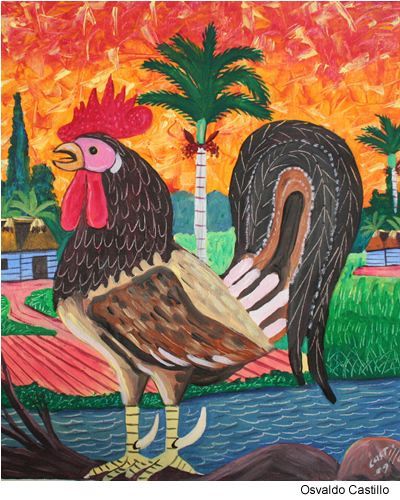
Public transport has always been a pending issue of the government of Fidel Castro. In spite of the fact that in the 80’s (when the country had more resources and support from Hungary and other former socialist countries), the Cuban government set up a factory that assembled the “Ikarus” brand buses in the village of Guanajay, 60 kms from Havana, it has always been almost impossible to attempt to seek transportation from one point of the city to the other.
In years which offered more abundant material wealth of the olive-green revolution, when there was access to yogurt and milk without the need to use ration cards, 2,500 buses and about 5,000 taxis ran about in the city; but not even then were they able to alleviate the deficit of urban transport.
With the advent of the silent war that is the “Special Period,” getting around town in the state transport was a feat almost worthy of an Indiana Jones adventure. There were times when some bus routes passed by twice a day. The “camels” surfaced, tractor-trailer trucks which hauled a large trailer carrying as many as 300 people packed like sardines; non-air conditioned saunas which also presented opportunities for pickpockets and perverts.
People walked up to 20 kilometers to take care of personal issues. At night the main streets were deserted and dark, for there were times when the electricity was shut-off 12 or more hours a day. Then came the heavy Chinese bicycles, which were largely to blame for the growth of fatal traffic accidents.
Not to mention the escalating violence; the streets of Havana, were in direct competition with the streets of Medellin and Rio de Janeiro. Just to steal a bike, the same thieves would cut their victims with machetes, or snare their victims with ropes hung along the width of the dark street you passed while on a bike ride.
Buses and “camels” were called “Halley’s Comet,” because they were so infrequent between trips. Castro was more concerned with helping Venezuela and squandered the meager public funds on meaningless economic plans, but in 2004, reality struck hard. At the Popular Assembly, sporting a startled look, Castro asked what the Minister of Transportation was doing to resolve the issue at hand in the transport industry.
True to form, el Comandante blamed the failures on others. However, he realized that if we wanted economic growth, we had to use bank funds to purchase buses, trucks and trains; five-thousand Chinese trucks and trains and an equal amount of Russian trains and buses were purchased.
Urban transport, in a state of indigence, saw the manna when 460 Yutong brand articulated buses started circulating around the city. The Motorbus Company, its official name, operates 17 routes denominated with the letter P, which cover the principal arterial of Havana.
At peak hours, it has a frequency between 5 and 10 minutes. The P’s are always full to capacity and are hot as an oven. They just lack bread, or cassava. The so much talked about improvement of the vainglorious Havana leaders is pure mirage.
It is logical that a capital of more than two million inhabitants, like Havana, if it is to function minimally, must have bus service able to move one million people each day in the city. In the absence of a metro or a commuter train, and where state taxis in local currency have practically disappeared, people’s only viable option is to ride on the crowded route P.
Now moving from the main streets to some distant neighborhood is a complicated story. Another calamity is the bus service that circulates in the more populous districts and neighborhoods.
With the twist to the economy, due to the two crises, the world crisis as well as the one we have suffered for the last two decades, the product of an endless Special Period, the expansion plans of public transport have been slowed and service on many of routes was reduced.
To make matters worse, among the staff of the company Metrobus it is rumored that due to the default typical of the Cuban government, providers will not guarantee the spare parts for years to come. If true, going from one area to another city may turn you into a martyr. Although never, to tell the truth, was a Havana bus ride very pleasant.
Iván García



